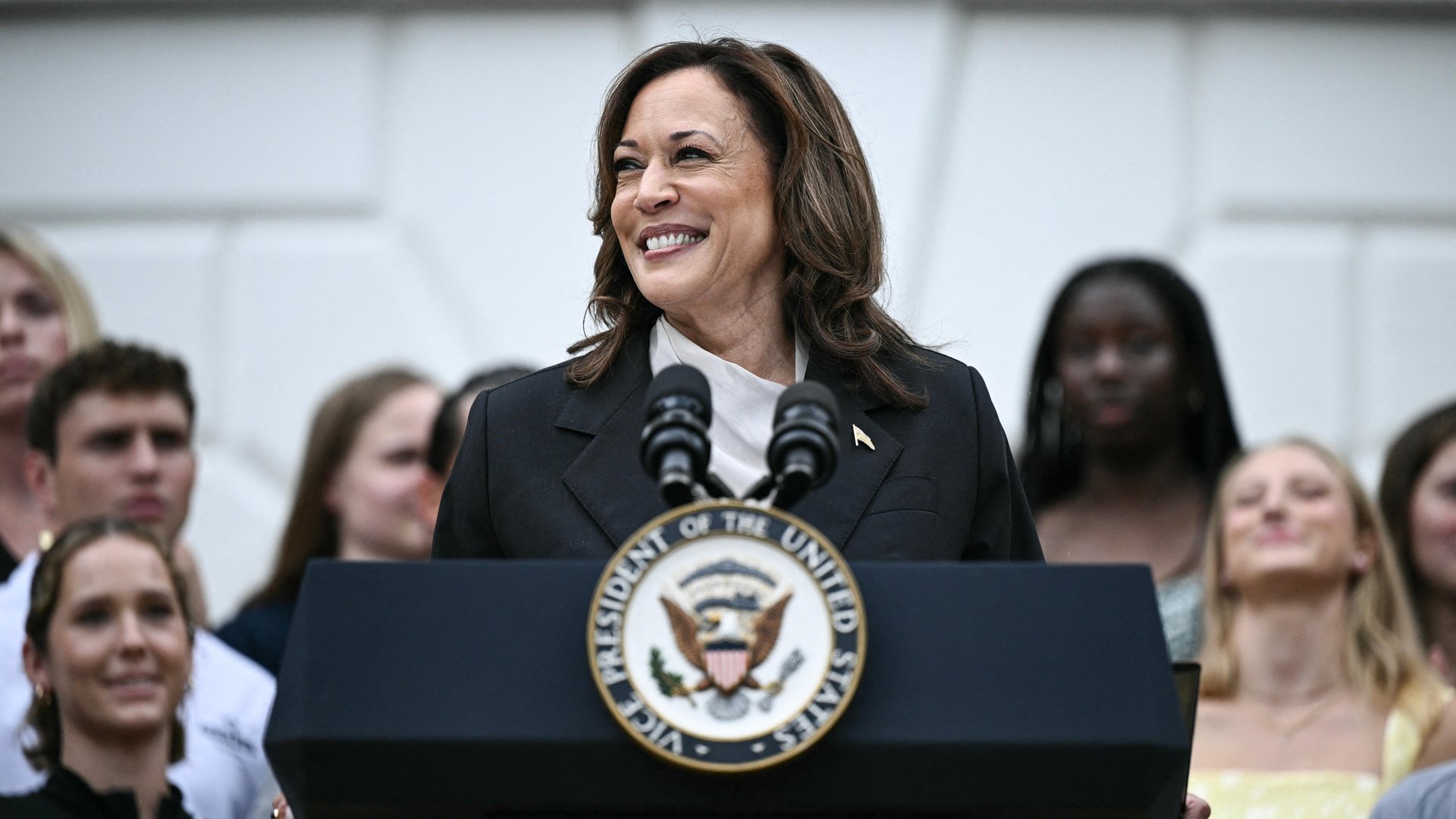What to know about Kamala Harris and her climate policies
Harris, the new presumptive Democratic presidential nominee, has been aggressive on climate change for years

Vice President Kamala Harris is all but set to be the Democratic nominee for president, and that may end up being a very good thing if you care about the environment. Harris has long been a proponent of taking action to slow climate change, even before she was the vice president.
Suggested Reading
Heatmap News broke down just how much Harris has done for the climate and why climate activists are excited to have her potentially leading the Democratic ticket come November. It chronicles what she did as attorney general of California, a U.S. senator and a presidential candidate back in 2020.
Related Content
When Harris has had the chance to formulate climate action on her own [...] it has tended to be aggressive in its timelines for decarbonization and heavily focused on the harms that fossil fuel extraction and processing inflict on marginalized communities.
As vice president, however, she has been subsumed into the rollout of both the Inflation Reduction Act and the Infrastructure Investment and Jobs Act. In some cases, the programs she’s pitched and praised have an organic connection to her own personal policy work — a grant program for electric school buses, for instance, the launch of which was the source of one of her more enduring Kamala-isms: “Who doesn’t love a yellow school bus?”
Assuming she wins the party’s nomination and then, finally, the White House, a Kamala Harris climate agenda would no doubt look much like Biden’s. To people who’ve been paying attention all along, however, there’s no reason to think she couldn’t push the country even more zealously toward decarbonizing.
For one, there’s the historical record. Harris not only endorsed Green New Deal legislation in 2019, she also put out a climate plan during her campaign that included $10 trillion of public and private spending and called for reaching net-zero by 2045, achieving a carbon neutral electric grid by 2030, no new fossil fuel leasing on public lands, and a carbon pollution fee. While expansive, Harris’s plan was not the work of someone like Jay Inslee, who has legislated on climate for years, or Bernie Sanders, who was willing to simply outbid his fellow candidates on progressive policy, but her climate policy was the process of consulting with climate activists. In fact, her team had reached out to Inslee’s after he dropped out for advice on climate, Jamal Raad, Inslee’s campaign communications director, told me.
During the 2020 primaries, Harris apparently had one of the most ambitious proposals for fighting climate change. In fact, her bill would have cost the most money of any candidate (other than Bernie Sanders). Justin Guay, program director at the Quadrature Climate Foundation said the plan would have been about 10 times bigger than Joe Biden’s — which to date is the largest plan to fight climate change from a president in history.
Guay told Heatmap that Harris’ plan was to focus on “sticks, not just carrots.” That means actions like investigating and bringing lawsuits against fossil fuel companies – something she did while in California.
Harris has also been known to focus on environmental justice, which can be thought of as the intersection between green politics and racial justice.
By the time the she was picked to be President Biden’s vice presidential nominee, she had won the praise of both the youth-led Sunrise Movement (which has since protested outside her Southern California home and notably withheld its support from Biden during his reelection campaign) and Evergreen Action, a climate policy group built by former Inslee staffers. “She made environmental justice central to her climate plans on the presidential campaign,” said Raad, an Evergreen Action cofounder.
In the summer of 2019, she joined up with Alexandria Ocasio-Cortez on a bill that would have required all climate-related legislation to undergo a review of its effect on “frontline communities,” those living adjacent to energy-related facilities, which tend to be disproportionately populated by poor people of color, and created offices of climate equity within the Congressional Budget Office and the Office of Management and Budget.
While this particular piece of legislation went nowhere, the motivating ideas have been all over the Biden-Harris White House’s policy agenda — in tax benefits directed toward projects in “energy communities;” in the Justice40 Initiative, which aims to direct 40% of climate and related spending to flow toward disadvantaged communities; and in the Greenhouse Gas Reduction Fund, a.k.a. “green banks,” aimed at making climate-friendly investing more affordable.
That’s all great, Raad told me. But he also added, “What’s more relevant has been how central she’s made climate in her vice presidency as one of her top priorities.” Harris reached out to Raad and others in the run-up to the IRA’s passage, he said. “She held a town hall. She barnstormed the country. As far as folks wanting further momentum in the next presidency, that’s the more relevant development — that she wanted to be associated with climate action.”
Now, this isn’t all to say that Harris would be a surefire win for those of us who are worried about climate change. Being the president means living in a world of compromises, and even if she does pull out a win in November, it’s not like Congress is going to have an overwhelming majority in either political direction, so getting all over her plans done may not possible.
Regardless, we must imagine what can be, and be unburdened by what has been.